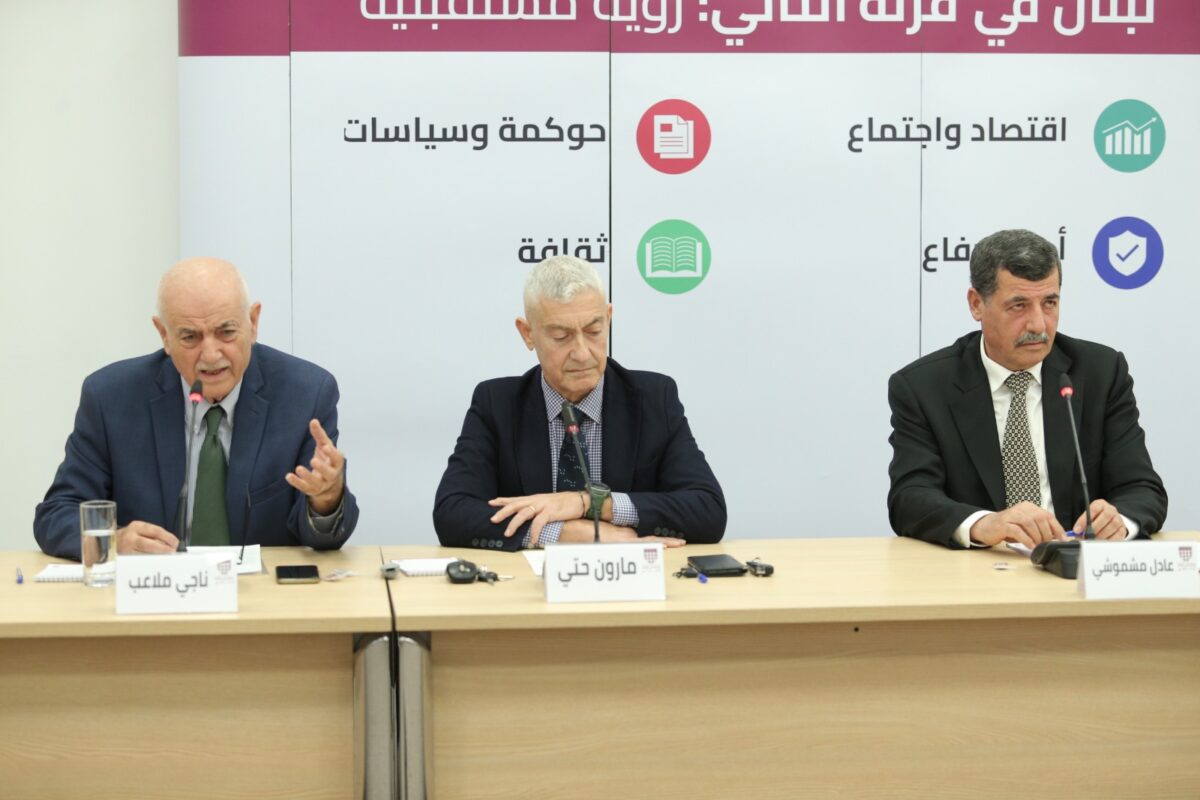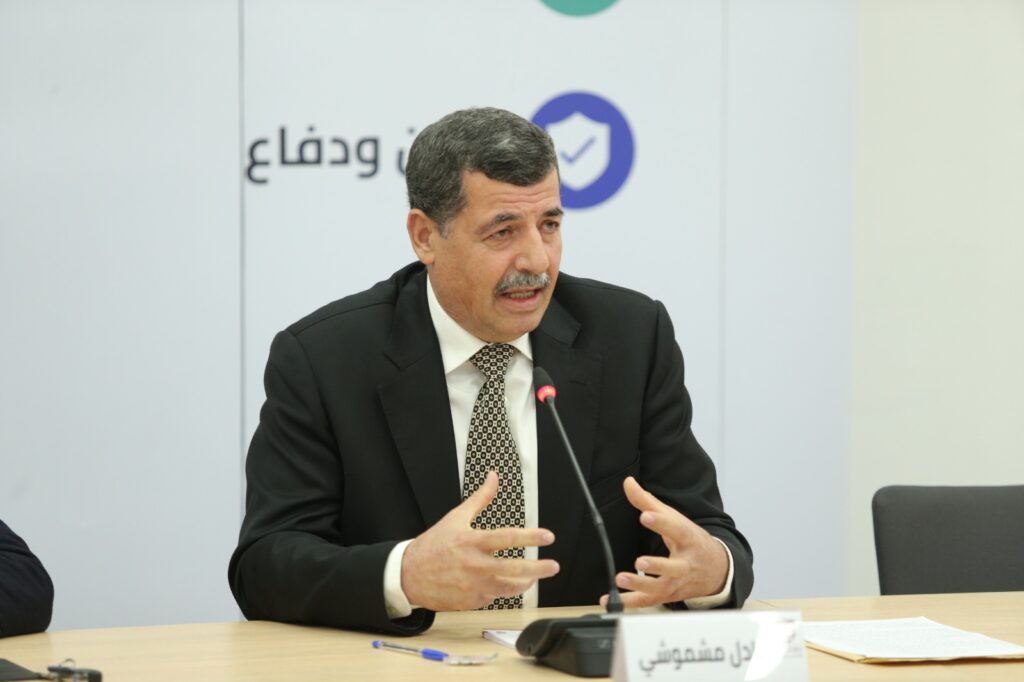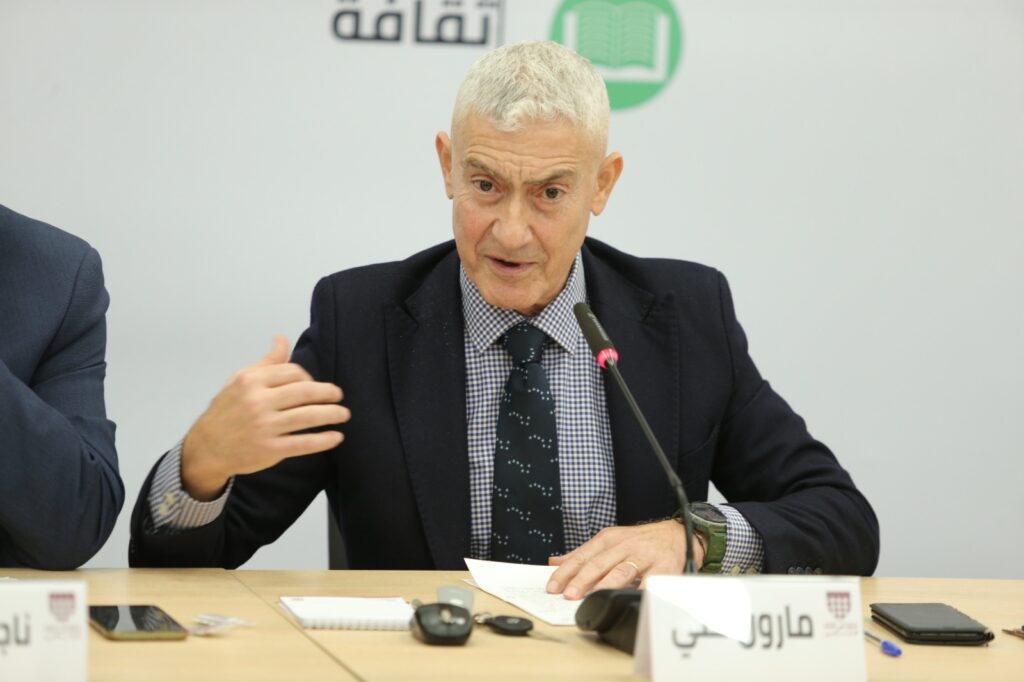
ROUNDTABLE 3: SECURITY REFORM
The third roundtable of the American University of Beirut’s seminar series, “Lebanon in its Second Century: A Forward Vision,” commenced on November 1, focusing on essential reforms in the Security Sector.
The discussions explored concerns about unifying security agencies, establishing a defensive strategy, and their role in nation-building. The series, organized by AUB’s Faculty of Arts and Sciences and the Department of History and Archaeology, will continue until March 2023.
Retired Brigadier Dr. Adel Mashmoushi addressed the first session, exploring the need to unify security agencies under one ministry. The second session, hosted by Retired Brigadier General Maroun Hitti, focused on ‘Sustainable National Military and Security Reforms in Building National Security,’ with moderation by retired Brigadier Naji Malla’ab.
“The path of security and defense is of equal importance to other paths,” Malla’ab emphasized, underlining that there is no security without sovereignty, no economy without security, and no national security without a defense strategy. He hoped that what Lebanon has witnessed in its first centenary would serve as an impetus for planning a sustainable future rather than a distorted sector, where defending sovereignty stands as a major drive. “Developing security reforms will serve for the evolution of social norms and ultimately will engage in a state-capacity building process,” he advocated.
Like the rest of the public sector, the security agencies have suffered from the economic breakdown since late 2019 on both an institutional and personal level. Despite support for the state as the ultimate arbiter of law, increasing social polarization in Lebanon over the last decades has impeded consensus on restructuring and reforming policing of the security sector far from political arbitrage and sectarianism.
Whether this crisis is likely to persist over the next few years is to be seen. Experts have argued that the bottom line of reform is that the security sector cannot be undertaken in isolation from the wider process of a real democratic transition to a modern state and national reconciliation, two pillars Lebanon has failed so far. They also say that despite ongoing changes in the state’s security structure, Lebanon has yet to embark on comprehensive security sector reforms. The absence of an effective security sector has until now relied on several initiatives funded by foreign donors.
Upgrading and unifying the sector
According to Mashmoushi, the reform of the sector needs to start by unifying the different security agencies, as many of them have contradicting and yet complimentary roles. Many of them were initiated out of a sectarian reason, he claimed.
Lebanon has three main security agencies: the ISF, the General Security (GS), and the General Directorate of State Security (GDSS). The Municipal police can also be seen as a fourth entity.
“Some of these units have been established to serve the political junta interest and have sometimes overlapping roles while failing coordinating tasks and functions,” he quoted.
The ISF is the largest security force, responsible for maintaining internal security and stability, including protecting property and individuals, and enforcing laws and regulations. The GS’s role includes border and passport control, protecting national security by gathering and investigating sensitive information, and censorship. The GDSS is the smallest security agency. Similar to the other security agencies, its role includes gathering information on potentially illegal activity by entities in the country and reporting them to the relevant authority.

Retired Brigadier Dr. Adel Mashmoushi
Mashmoushi indicated that the process of achieving security is amongst the most significant dilemmas facing human societies since their inception. “Challenges that emerged due to criminal patterns coincided with the advent of globalization with its methods, means, and tools,” he said. “Also, a digital virtual world has solidified, providing numerous opportunities for criminals and individuals with deviant tendencies to engage in various dangerous behaviors, some of which involve criminal activities. This evolution witnessed in the virtual cyber space compelled security decision-makers to notably prioritize digital security. This became especially crucial after digital technology and smart techniques became accessible to everyone, individuals, workers in organizations, administrations, and institutions, becoming a part of their daily lives. Therefore, the security sector faced more challenges and required more reforms to fulfill its multiple tasks hence the need to create more functions for deterring criminology,” he concluded.
Unifying rules and procedures
In the second session, Hitti addressed the issue of building a “Defensive Strategy and its Role in the Future of Nation Building.” He underlined the need to have clear-cut written guidelines, charting, and documents to serve as a road map for laying down a road map that will guide the strategic direction of the sector.
“Although the term ‘National Defense Strategy’ can be a rather esoteric one within the circles of political science, it is actually a fundamental concept to the art of statesmanship and the need to know ‘who is who’ in the decision-making of the government,” he said.
Hitti said that Lebanon needs to update a 1977 defense law which laid the road map to position all of the actors’ roles in implementing their security tasks; however, this law was never given enacting privileges. According to Article 65 of the Lebanese Constitution, the Council of Ministers is responsible for formulating the defense strategy, as “executive power is vested in the Council of Ministers,” and among its powers is “setting the general policy of the state in all domains.”
Concerning implementation, it primarily falls under the responsibility of the Prime Minister, as stated in Article 64 of the Constitution, making them “responsible for implementing the general policy set by the Council of Ministers.” Additionally, it also involves the Council of Ministers and the Supreme Defense Council, whose duties were defined by Decree Law No. 8 of 16/9/1983, later amended by Decree No. 101 of 26/9/1984.

Retired Brigadier General Maroun Hitti
While criticizing the politicians and main elite factions on the concept of understanding what a ‘National Defense Strategy’ encompasses, he emphasized that a reliable and effective pathway for organizing national regulatory documents related to security and defense needs to be dictated by the council of ministers that would specify the work of all security organizations and chart a road map for a ‘National Defense Strategy.’
“A National Defense Strategy is crucial to the survival of a state in a modern, globalized, and hyper-competitive world and the greater issue of Lebanese state sovereignty,” he said. “The term is not limited to the domain of the military and rather needs to encompass all of the state’s assets, whether they are demographic, natural, and technological inter alia,” he said.
“The security authority should start by prioritizing all political institutions’ mode of governance and state assets for protection before conceptualizing possible threats to these assets and finally working on mitigating these threats. Henceforth the concept cannot be a narrow understanding by the ruling elite, their sponsors, and external masters,” he added.
Hitti believes that it’s crucial for a modern concept of security to encompass defense and security, where the need to return to a technical foundation will be obtained as a permanent tool for the security sector organization. This, he argued, “is essential for obtaining the needed charting of security roles and transforming Lebanon into a sovereign state, ultimately making the Lebanese state a tangible reality.”
Hitti concluded the session by stating that if Lebanon needs badly to organize institutional guiding documents for charting a National Defense And Security Policy, it must exert consistent efforts to bring about different checks and balances in the system in order to determine the required functions within the security and military institutions, a key requirement to secure the necessary capabilities to enable those to execute their missions. If unsuccessful, the country would remain in a state of haphazard planning to improve the capabilities of inherited military forces lacking clarity regarding strategy, methods, and means—perhaps even lacking in intention and willpower.
On all accounts, Lebanon’s politically fragmented elites remain far from agreeing on defining a comprehensive “National Defense Strategy” encompassing various fields, with clearly defined and advanced objectives both in concept and content that will allow it to confront risks of all kinds and protect its sovereignty and people.
The main question today is – will there come a day when an explicit and effective strategy emerges from the midst of the fragmented Lebanese political medium?
Maan Barazy is an economist and founder and president of the National Council of Entrepreneurship and Innovation. He tweets @maanbarazy.
The views in this story reflect those of the author alone and do not necessarily reflect the beliefs of NOW.








